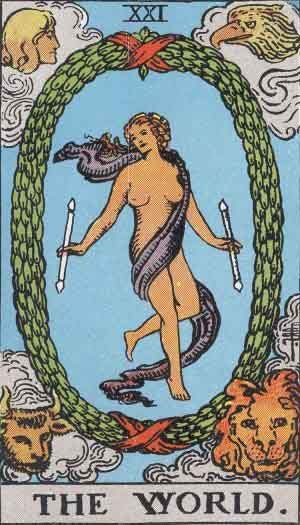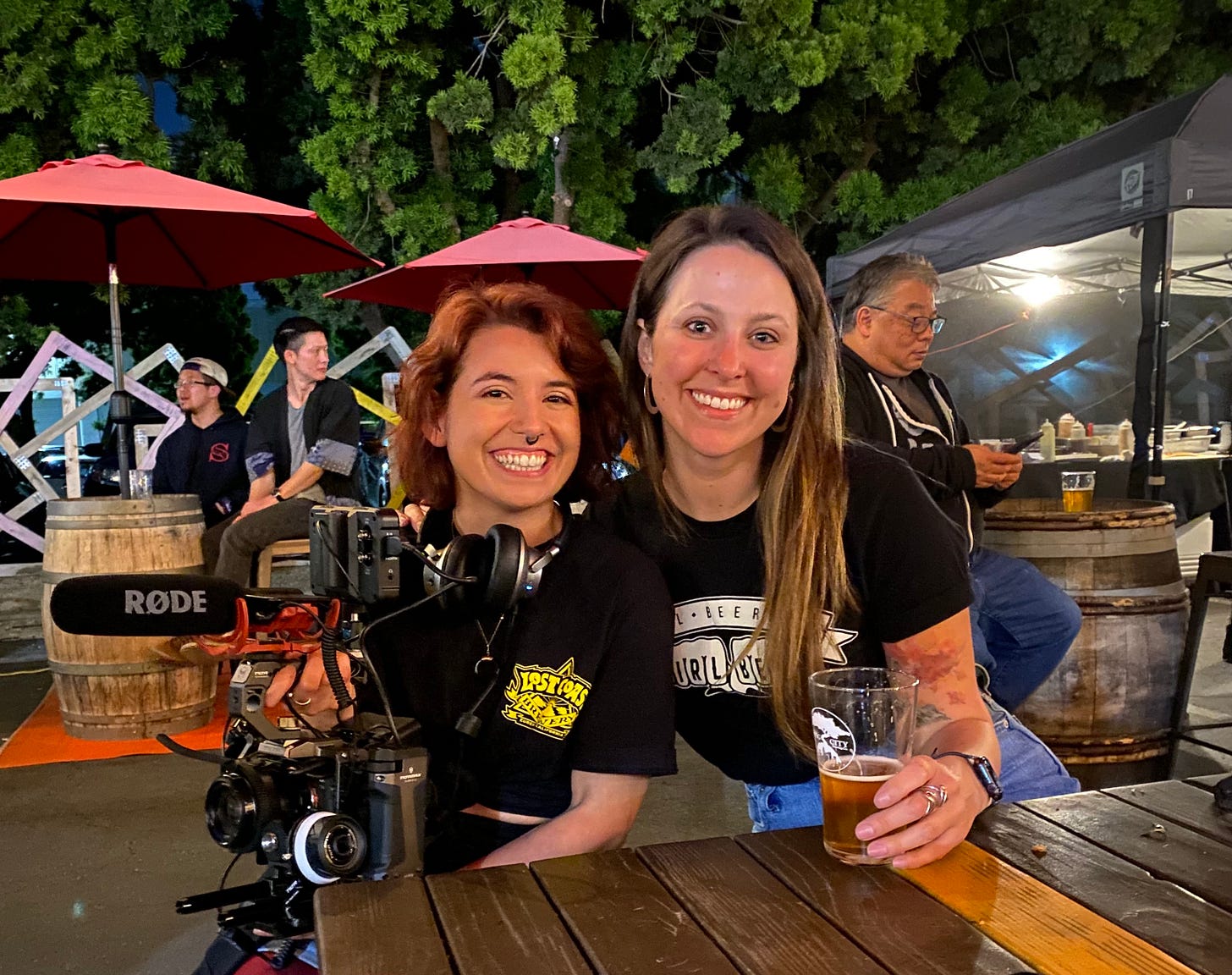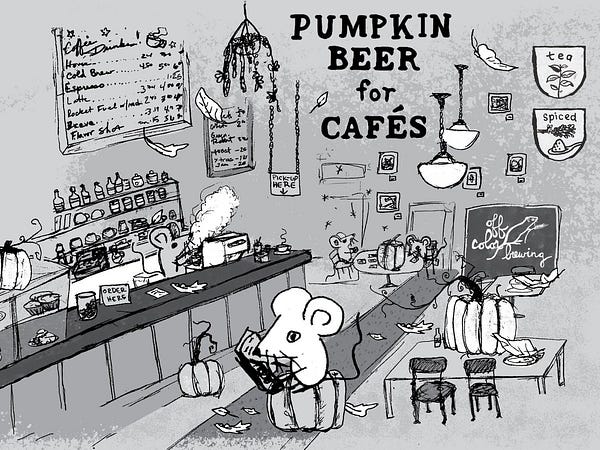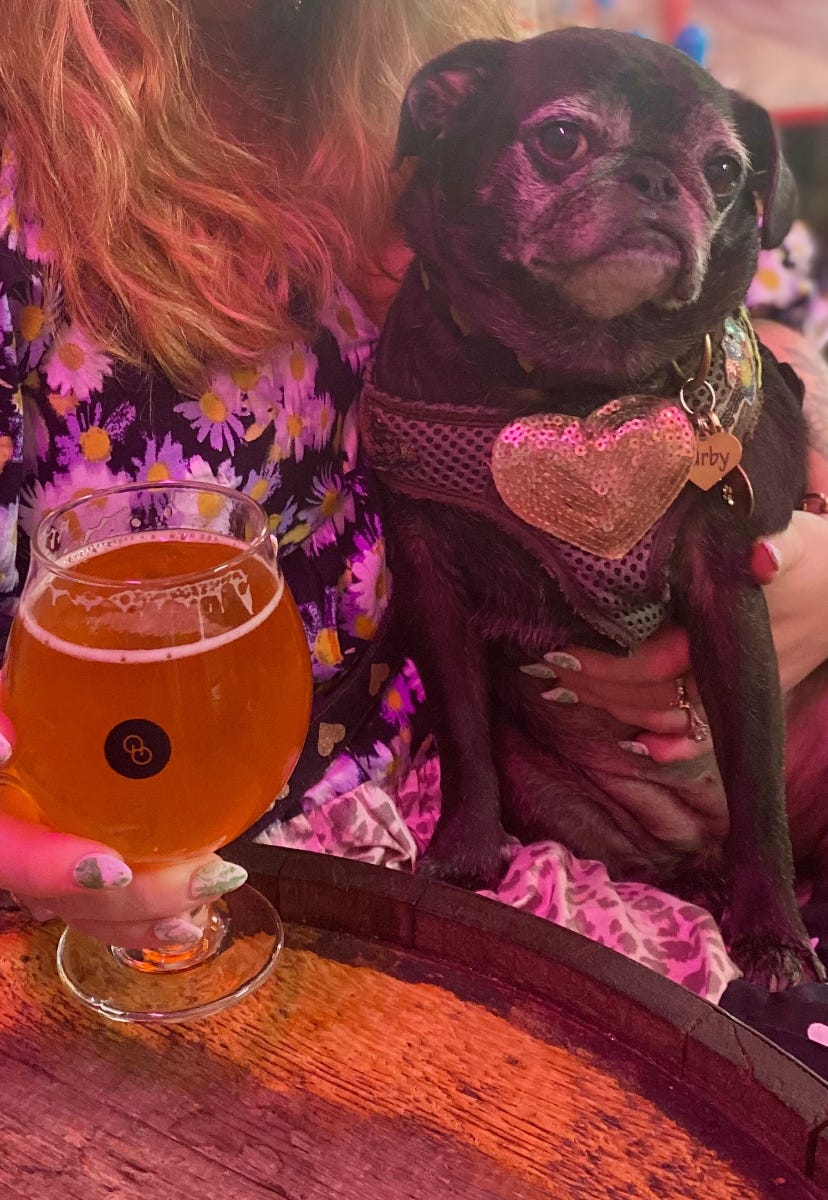59. All Beer Is "Girl Beer"
A Q&A with "Girl Beer" filmmaker Marena Domingo-Young ahead of the doc's NYC screening; plus tarot for the beginning of fall beer time!
“Girl Beer” Is Ready to Sweep the Nation—and Make an Impact in the Process
I stumbled upon the Instagram page for documentary-in-the-works “Girl Beer” in my earlier days of beer Instagram, thanks in large part to their awesome merch designed by @HopHeart. I was hooked right away for several reasons. And yeah, that sweet merch was one of them! But I was also so excited a team was taking on this big goal of making a film about women in beer, specifically addressing the “girl beer” stereotype. You see projects like this and you get that glimmer of hope that even people outside the industry, the craft beer consumer base we talk a lot about here because the industry needs their support and needs them to care, will learn about biases and stop perpetuating problematic attitudes.
“Girl Beer” premiered in Los Angeles in April of this year—the team is doing screenings at breweries and beer bars to keep growing the film’s audience. I started talking to filmmaker Marena Domingo-Young about bringing “Girl Beer” to New York, and then, because frankly I had no idea how to connect some of the planning dots, turned to our NYC Pink Boots chapter leadership for help. So, thank you to Simone Schroeder and Sarah Deodath for getting the ball rolling—Sarah was on top of good venue options and found the screening a home at The Spare Room at The Gutter in Williamsburg—and The Gutter folks have also been rad. The fact that our Pink Boots chapter was so helpful in making an event like this happen is just too perfect an example of this community—you just absolutely love to see it.
And so! On this coming Monday, August 15, at 7pm at The Spare Room at The Gutter, Marena will be screening “Girl Beer.” If you’re local, this is a rare opportunity to come see this very exciting, very important, very impactful doc! After the screening, I’ll be doing a Q&A with Marena and we’ll also open that up to questions from the audience. So, come drink good beer at The Gutter and see “Girl Beer”!
By the way, in case you did not believe that I am new to this planning thing, I started promoting this screening last week on Instagram with…the wrong Gutter location. Cringe, face-palm, etc., etc. So, make sure you come to Williamsburg! It’s 200 North 14th Street. RSVP here—where, in addition to “Girl Beer”’s Instagram, you can find other Northeast screening dates.
And now, ahead of the event so you can learn a bit more, here’s a chat with Marena.
Which came first for you, being involved with film or with craft beer?
Film came first technically. I got my degree in Theatre & Performance but was swayed to pursue screenwriting while taking filmmaking classes for my degree. Once I started working in the service industry, craft beer kind of fell into my lap. Never thought I would end up a beer aficionado but here we are. It’s been good to me.
How did you start working as a filmmaker?
I took a chance honestly. I’d never produced anything from start to finish and then some. It was, and still is, kind of wild. Luckily I had a good network of resources around me. And thank the gods for Youtube! We have the internet now, we can figure out anything.
And so how did you get into craft beer?
Pure chance. I’d already had a preference for a craft beer from my hometown, so I would drink that all the time. But the main trajectory was because of my hopping and skipping around to different cities riding the service industry skill set. This landed me in a dive bar in the South Side of Chicago that had a bunch of notable craft beers. I added that to my resume and from there it was one stepping stone to the next.
What has that craft beer journey entailed for you so far?
Lot’s of great beer, first of all! I’ve tasted some of the craziest, most special beers. I’ve gotten to work at various beer festivals. Real fun stuff! And I’ve also made a bunch of friends. Service industry, you know, we’re creatures of the underworld, and that shared love of micro-dosing masochism by working in the service industry has forged so many amazing bonds between me and co-workers in all the places I’ve worked. Whenever I was in a new city I was never worried about finding friends because all it would take was me locking down a job and then POOF! Friends! That’s always the best part for me.
What inspired you to make “Girl Beer”?
My co-workers, really. Admittedly, it took me a few years to realize what was going on with a lot of the verbiage I’d encountered. And I know that for sure early on I “understood” and complied with a request for a “girly beer.” It was when I was working at Mikkeller in San Francisco where it all clicked. I asked some other femmes on staff about it and their response was, “Yeah…it happens,” and I was just like… “No.” I thought about the best way to get this message out and I decided on making a film. But I didn’t have the means or support to actually start seriously working on it for almost three more years.
Can you tell me a bit about your experience in craft beer leading up to this, what were you seeing and feeling? And maybe what was crystallizing when you talked to other women in craft beer?
Oh dear…all kinds of fun stuff. Overall, like I mentioned, craft beer is such a fun thing! I love everything about beer. But once you realize what’s going on, especially what causes it, you can’t ever not see it. The staffs I was on were all very supportive. There was none of that bullshit rhetoric coming from the staff, it was all customers. It would range from these mostly conditioned micro-aggressions to down-right insulting behavior. It was crazy to be kicking ass in an industry night after night, but hear the same garbage from different people. It’s exhausting really. And me taking down people’s misconceived notions one at a time from behind the bar was just not going to make it stop. Making a movie was pretty much the best way I could think of to get the message out to more people.
What do you think is the impact of those biases and attitudes?
I hold so much respect for the people who can [deal with] the constant, and I mean CONSTANT, comments and scoffing and wage-punishing that comes from the customers with these biases. I swear, I’ve met people who can just let it all roll off their back. But not me. Clearly. For the rest of us, it’s grating. Just chips away at you. And at times it comes down to gambling on getting zero’d out on the tip line just for correcting someone on those biases. When someone can go into your place of work, degrade you, and then punish you by withholding pay because you dared to speak up, there’s something really fucked up about that. Of course that opens an entire other conversation about tipping and the fundamental issues with worker pay, but on the surface it’s those cringe interactions that can just wear on you and make you doubt yourself. This is why in the film we expand the idea that this is a women-in-beer problem to a woman problem. And it’s not only about women, it’s about anyone who doesn’t identify as a cishet male.
What do you think the power of a project like this documentary has in telling these stories and perhaps changing some of those attitudes?
“Girl Beer” is a film made by women in the craft beer industry for the craft beer industry. Something I’ve heard from women in the industry is that they thought it was just them, or that they were alone in experiencing these things. The main goal is to foster a sense of solidarity among women working in beer. You’re not alone. And not only are you not alone, but BEER WAS OURS! We want to reclaim that space. We also want to teach, which is kind of the reason why we like to have screenings during operating hours. People who just happen to be in there, we hope they check it out and maybe learn something too. If this film can get even just one person to stop saying “girl beer,” then it’s a success.
What are some of your biggest hopes for craft beer in the future, and how can “Girl Beer” play a direct role in contributing to that change?
Well, I hope we continue to find ways to be more sustainable, commit to equity, diversity, codes of conduct—there are already a lot of really amazing people in the Sacramento beer community that seem to be leading the charge on that. I don’t think a lot of people/establishments know how important it is to hop on this social evolution train. You’re either moving forward with us, or we are leaving you behind. For “Girl Beer” helping out with that, I am just happy to have added not only my voice, but the voices of others as well, to the battering-ram of change that a lot of people have been working on long before “Girl Beer” was even an idea.
Specifically, what does “Girl Beer” explore in terms of the environment for women working in craft beer and being members of the beer scene?
In the film we interviewed five women involved in various areas of the industry and get a peek into the spaces they have carved out for themselves. Despite their roles, there are still commonalities when it comes to experiencing these biases of beer strength, color, or ingredients. These notions are so pervasive that it doesn’t even matter if you own the bar. It’s not only the frequency of these encounters, it’s that it’s the same things being said over and over. But lots of people are staring those right in the face as they continue to excel. And that is also part of the expanding out of just the craft beer industry outward to women in other fields.
Can you tell me a little about your decision to confront this kind of stereotyping right in the title of the documentary?
The title comes from the phrase used to describe beer that is seen as weak, or fruity, or made with wheat. If a beer comes in a glass that isn’t a pint glass, it’s too feminine. I’ve literally had men say, “I need a man glass for my man hand.” It’s absurd. So that idea, the idea of a drink being gendered in a really invalidating way, is what made “Girl Beer” an obvious choice. It’s taking it back. The film is centered on this paradox of “girl beer”: because “girl beers” don’t exist that means that all beer is “girl beer,” because women drink all kinds of different beers.
What did you know you wanted to capture, and represent, when you were first developing the project?
We filmed when I was living in LA, so we started with a list of women we’d heard about in our immediate area. Giving these women a platform to show what they do and that they exist was our strongest angle to tackle the question of “what is a girl beer?”
Did anything else come up and surprise you along the way—maybe where you realized it had to be an element of the film as well?
Just by happenstance, one of the women in the film had just done a talk about the history of women in beer. We knew that info was incredibly important to validate and solidify women in the craft beer industry. Her contribution to the film maps the progression of women’s importance with beer back in Mesopotamia, all the way through til today, which really opens up your perspective on why it’s so confusing to deal with what we’re dealing with today.
I’d love to hear about the actual process of making this documentary. When you started, what that road looked like, how you collaborated with different people and how others were involved?
Originally we were just going to film this on my iPhone, which we did end up catching some shots on that. My coworker/cohort Courtney [Rosenthal] and I bought some beginners’ film gear and we started emailing people. Turns out some of the people on our list ended up not being able to participate, but people kept referring other people to interview so we got a really good smattering of interviewees. During pre-production we picked up a few more crew members and ended up being able to put together a solid project with four people: Ashley [Bales] (producer and social media manager), Courtney (producer), Kim [Boden] (cinematographer), and myself. For post-production we had help from an editor named Victoria [Villa], and Meredith [Wygala] mastered our sound.
What were some of the biggest challenges along the way?
Covid, big time. Everything really just hit the brakes once that started. Production-wise, it was challenging at the beginning because we didn’t even know what questions we didn’t know to ask. But when you start figuring it out and things start coming together it’s really rewarding, and exciting! But also the legal aspect on the tail end of the post-production was very difficult to navigate. Kafka-esque, undoubtedly.
I believe you started working on this before the beer industry’s own #MeToo movement sparked in May of 2021? I’m curious how that maybe affected the work, and/or the sort of mission for the documentary.
We did, yeah. It was actually wild to watch that unfold knowing that one of our interviewees calls out that it’s on the way. By that time we already had the film in the can, but knowing that we had someone comment on it while it was fomenting really pushed the relevancy and importance of getting this message out. There have been a lot of really prominent places who have been called out and forced to make changes, which is what people movements are all about. And this goes back to the idea of reclaiming spaces, forcing that change, you know? There are a lot of tactics that people are utilizing to make this happen and we are just throwing our hat in the ring.
How has it been now that you’ve started being able to get “Girl Beer” out into the world and share it—what does it feel like for you? What has the reaction been like so far?
Considering that it had been a long time coming, it really feels like a victory to finally be sharing it with the beer community. And we’ve also had some success in a few film competitions, winning some honorable mentions and special recognition awards. Not bad for some rookies. People have been so supportive and excited, really it’s exhilarating knowing that what we set out to do is happening. I’ve been living with the film for such a long time that I could probably recite every line, but it always amazes me watching other people watch it. When the grins come out and I see the heads start nodding, I know that “Girl Beer” is connecting with those people.
What are some of your goals for the film itself, in terms of showing it and sharing it?
I just hope we can get it shown in as many places as possible while we can. We can’t upload it online because of licensing and film festivals, so bringing it to different regions will help us hit some craft beer hot spots and hopefully strengthen the network of women working in the industry. Maybe the right person will get eyes on it and would want us to do something bigger, who knows. In the meantime the important thing is sharing it with as many people as we can. We have a GoFundMe which has been really helpful in getting us from place to place, so we’re always very appreciative of that as well.
What are some of the biggest takeaways you hope people get from watching “Girl Beer”?
With “Girl Beer” we want women, and all other non-cishet males, to feel empowered, educated, and excited to walk into a bar or brewery and know that they deserve to be there. Beer is such a beautiful creation that spans millennia, everyone should have access to it in a safe and inclusive environment. And if you see some of this trash behavior that we’re talking about going on, I hope you feel confident enough to speak up and be an ally. We need everybody.
How do these points perhaps relate to women in any industry, really?
So much of what we see in the craft beer industry translates to women, et. al, in any industry. In the film we have a panel of beer enthusiasts in various careers talk about their experiences drinking beer, beer advertisements, and then how the reality of women in beer translates to their own experiences. This isn’t just a women in beer problem. It’s built into the very foundations of our current society. There have been legions people fighting for equity on so many fronts. It feels as though craft beer has started to get some teeth and frankly, we’re not going to take this anymore. The patriarchy is deeply embedded, but to be radical means you strike at the root of the problem. The solidarity that we can build, inside the craft beer industry as well as outside it, is invaluable in this struggle.
Beer Tarot!
This week, I pulled The World.

The World speaks to themes of completing some task or journey, accomplishment or a sort of victory, and also travel. It’s about reveling in something having reached its culmination, so maybe a certain phase of your life is complete and you’re excited about that, or maybe you’ve completed something, like a project, a class, a renovation…basically, something important has ended in a positive way and it’s something to revel in. But, as you can see from the circle on the card and think about as the world doesn’t stop turning, whatever it is that’s over for you just means you’re ready for the next phase or path. You completed a course so now you can start on a job hunt in that field, for example. Or maybe your single days have ended because you’ve now entered the phase of being in a relationship, or vice versa—reflect on and learn from the thing that is over, and feel promise in the potential of the next thing. Specifically, that next thing could very well be travel- or move-related, whether you’re embarking on a new but very temporary adventure or moving to a totally new-to-you place.
Some may say this is too soon but to them I say, “nay!” Thinking about what The World means, I feel this signals the coming completion of our annual demand for “summer beers” and the beginning of…Oktoberfest beers, bring ‘em on! No, silly, I don’t think we stop wanting perfectly crisp pilsners and kölsches and helles lagers at any point ever. But seasons change and so too do our focused fervors. At some point we transition from only wanting what’s light and golden to also wanting something a little amber, a little grahamy…Maybe by the time September hits some of us are even thinking about pumpkin beers. Embrace the changing phases, friends.
This Week’s Boozy Media Rec
Joshua M. Bernstein dug into the trend of breweries expanding with food hall locations instead of their own standalone locations for VinePair. That might sound like a pretty cut-and-dry phenomenon, but there are lots of interesting dynamics at play, from competition in the beer industry (you can barely throw a rock without hitting a taproom these days) to the support and mutual benefits of being part of a food hall to the what the modern food hall offers patrons. It’s a great read and now I want to go wander a good food hall!
Ex-BEER-ience of the Week
Friday night I stood in a packed basement constantly jostling for the ability to actually see a stage from behind tall people while drinking a can of Miller High Life. And it was great! I get to Union Hall’s comedy shows as often as I can, but this lineup was magic. Shalewa Sharpe, Caitlin Peluffo, Martin Urbano, Jordan Jensen, and Joel Kim Booster(!). You probably already know Joel Kim Booster, who is fantastic, but go check out any and all of the others if you like to lol.
Until next week, here’s Darby being sassy at Other Half.










